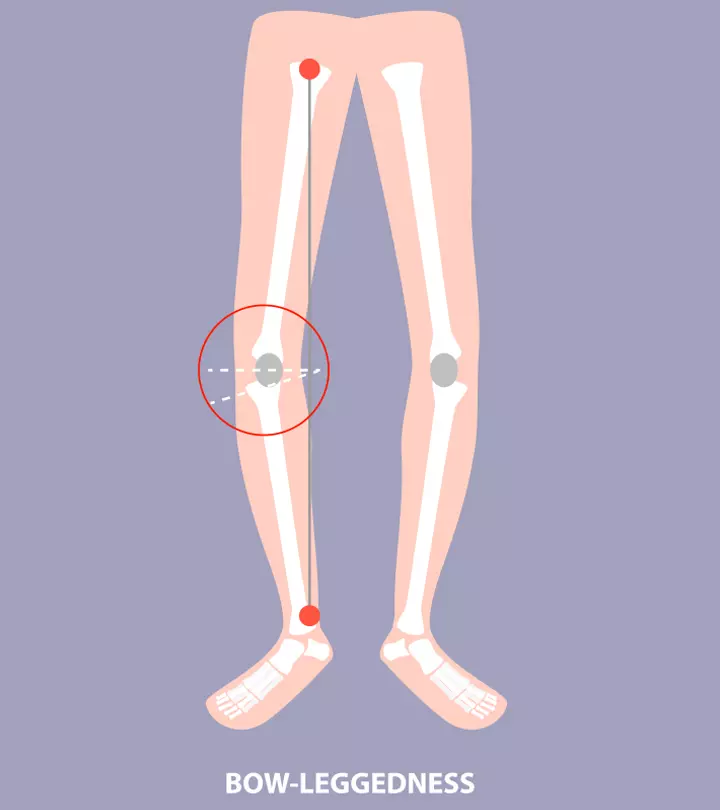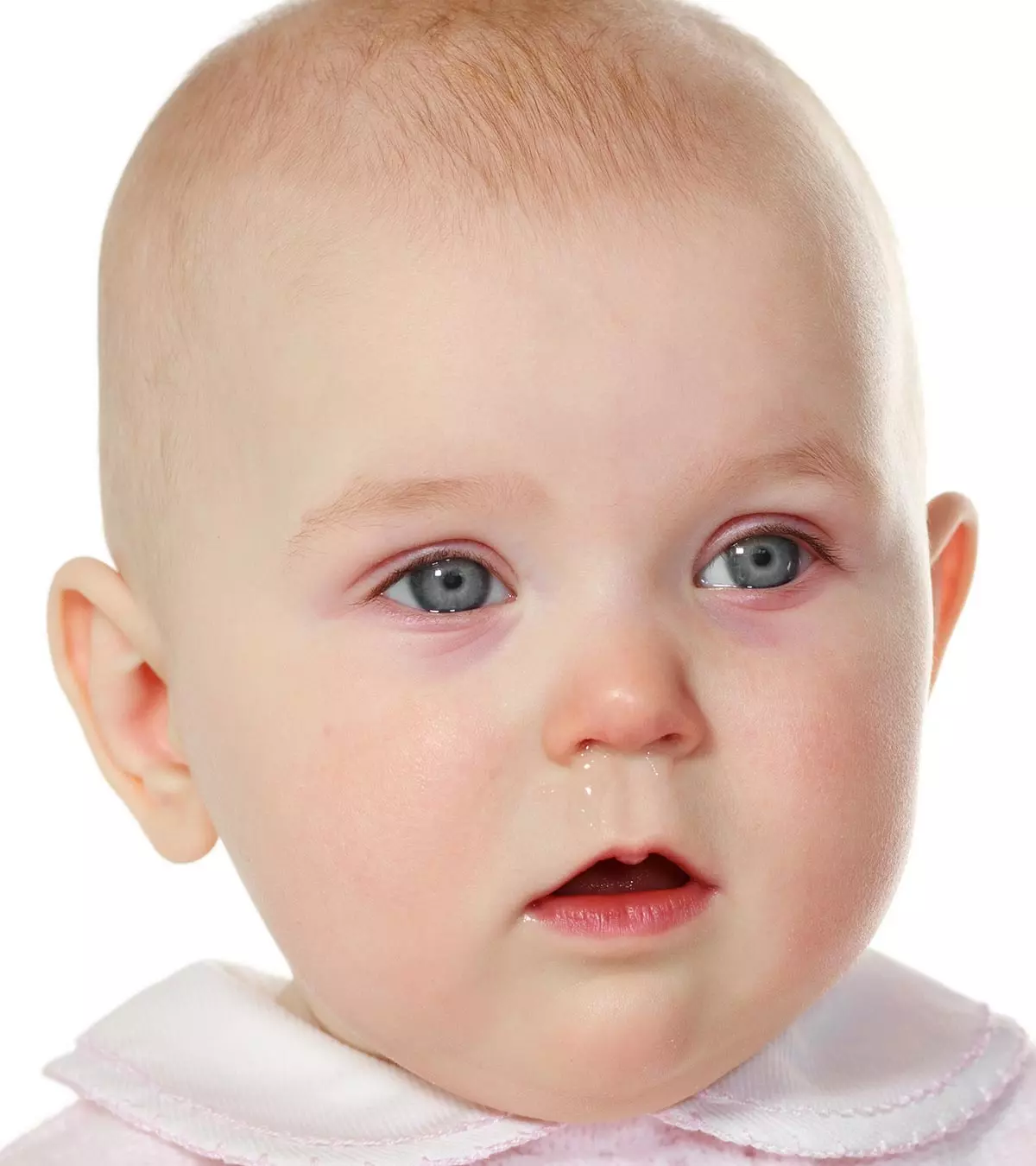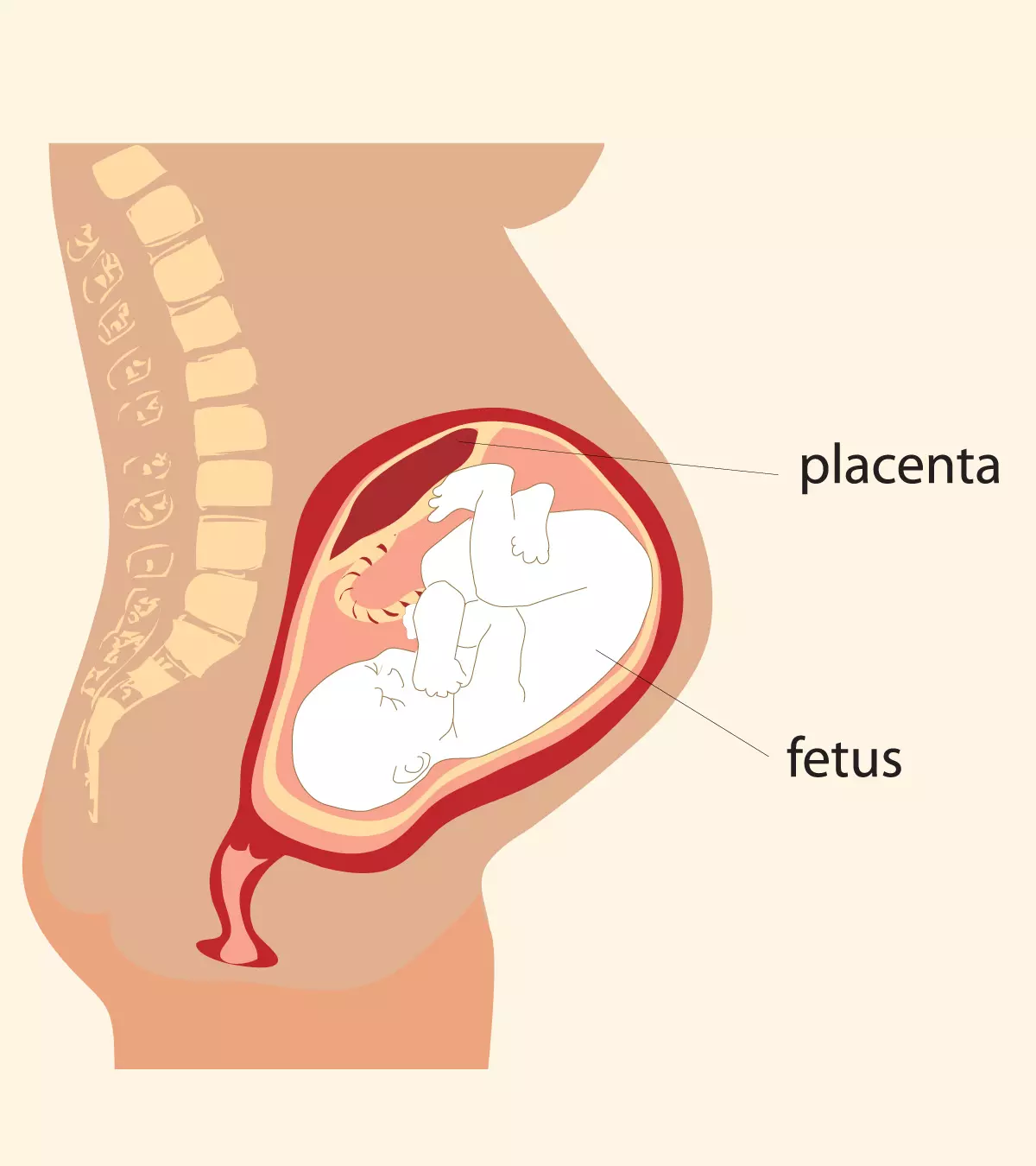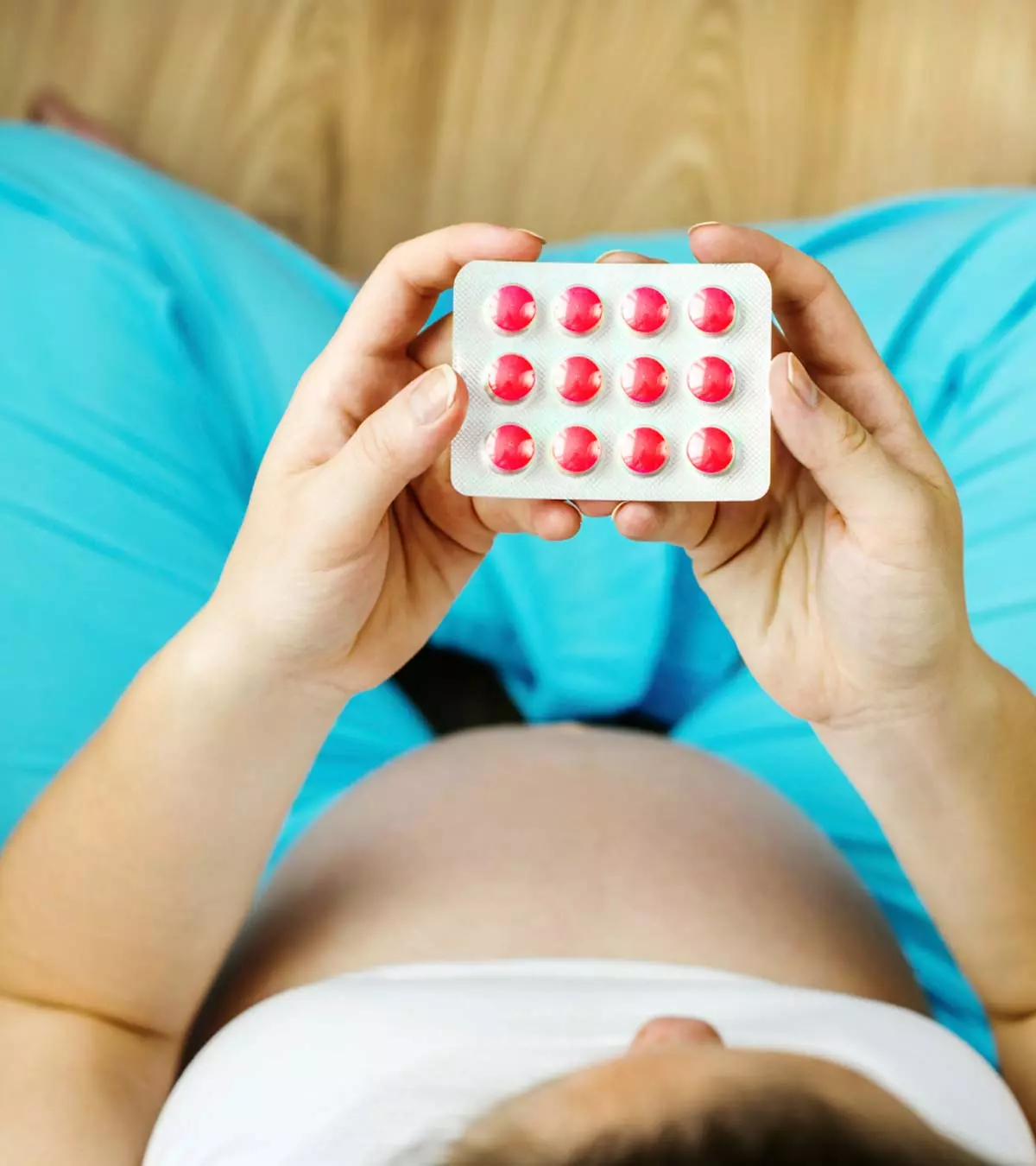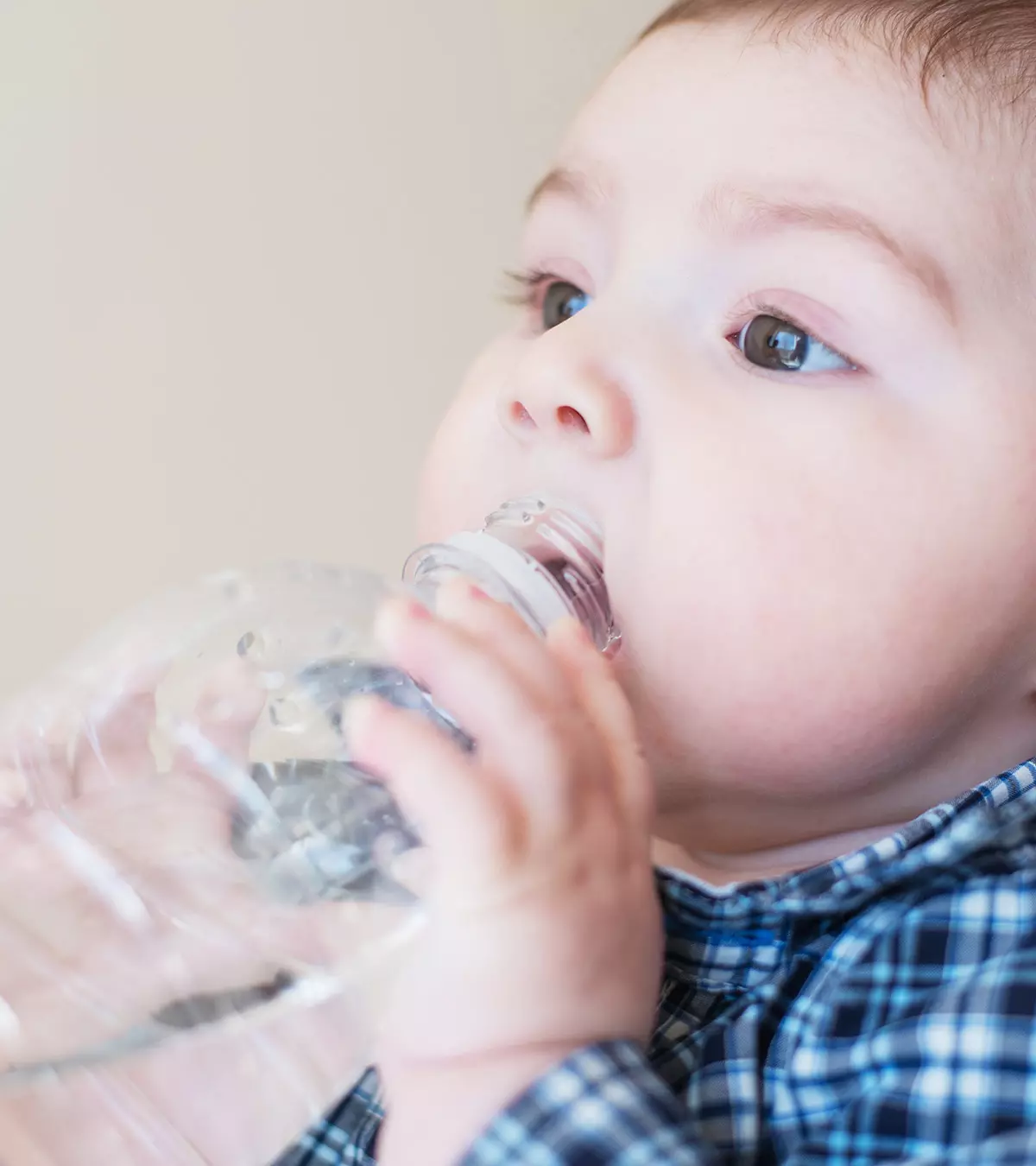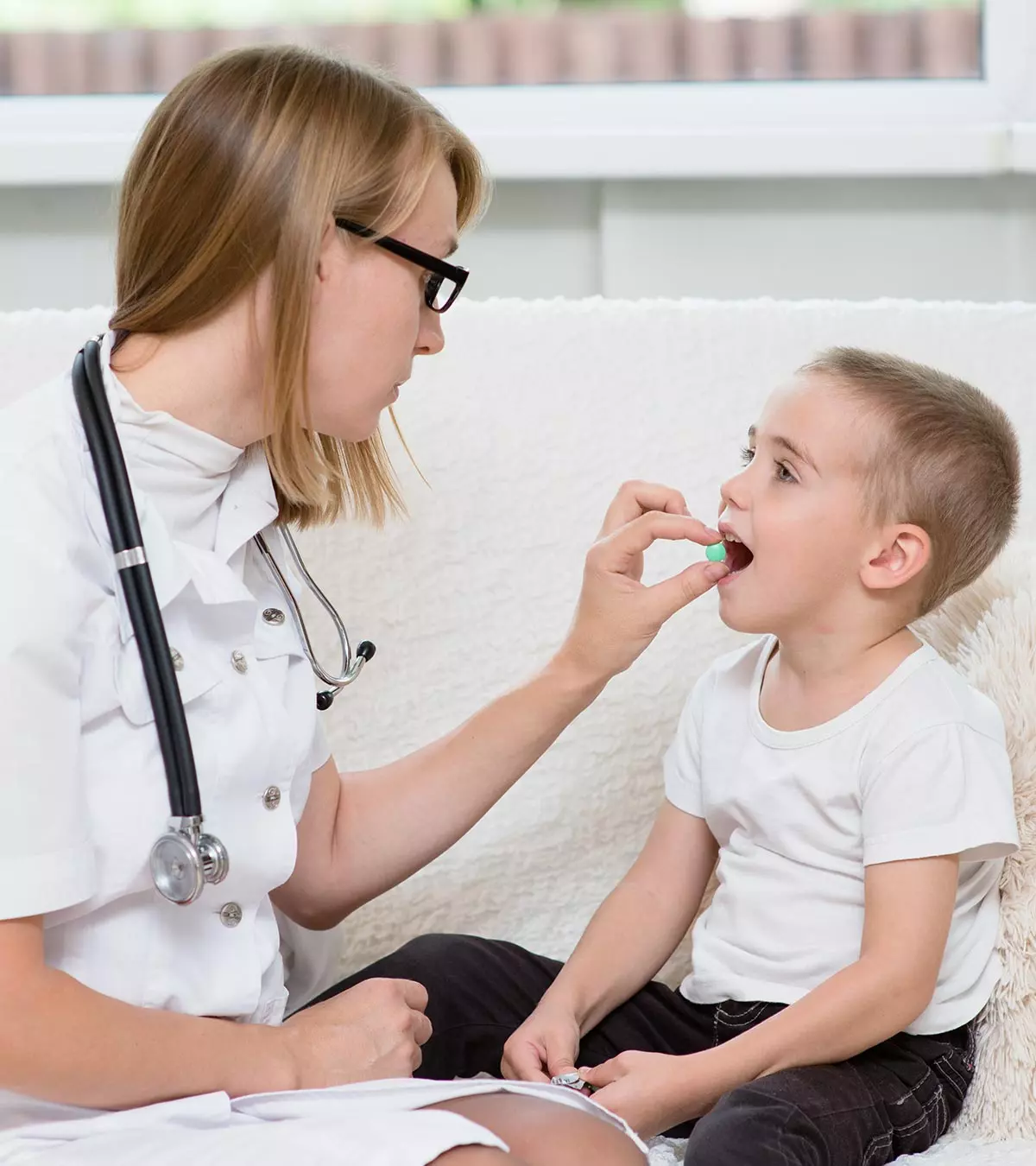
Image: ShutterStock
Prednisone for kids could be prescribed for immune system-related diseases. Prednisone and its metabolite (Prednisolone) are glucocorticoids that suppress the immune system and reduce inflammation (1). They have many indications, including those for children, and are analogous to hormones produced by the body. However, there are uncertainties about the use and potential side effects of Prednisone and Prednisolone for kids.

This post discusses Prednisone’s safety profile, dosing, and other relevant aspects for children.
Key Pointers
- Prednisone is prescribed for immune system-related diseases.
- Prednisone works by suppressing the immune system and reducing inflammation.
- It is prescribed to children who have asthma, inflammatory bowel syndrome, autoimmune diseases, and Duchenne muscular dystrophy.
- The medication should be given to your child only upon recommendation by a doctor.
- The dosage of Prednisone is decided based on your child’s body response and the severity of the condition.
- Prednisone comes with side effects such as vomiting, behavioral changes, and sleep disturbances.
- The medication could also impact the growth and development of children.
- Managing the side effects can minimize long-term effects to some extent.
- Following a calorie-deficit diet, avoiding food with high sugar content, and avoiding spicy food are some of the coping strategies.
- Prednisone could interact with other drugs, causing adverse reactions.
When Is Prednisone Prescribed For children?
Prednisone, also known by its brand name Rayos, is given to children for the following health issues.
- Asthma: The National Center for Health Statistics survey reveals that approximately 4.8 million children under 18 have asthma. Among children, 7.3% of males experience asthma, whereas the percentage for females is 5.6%. If your child has asthma, then the doctor might prescribe prednisone for asthma in kids to reduce the symptoms such as wheezing. It is also given during severe asthma attacks for a short period to reduce inflammation and swelling of the airways (2).
, a registered nurse specialist from Bozeman, Montana, says, “ Prednisone is not the first-line treatment but is prescribed during an asthma attack and for the first few days following the attack to help prevent its recurrence. It takes a few hours for the drug to show its anti-inflammatory effects. Still, it is a critical piece of the overall treatment plan, as prednisone reduces the severity and length of asthma exacerbations, reducing the need for hospitalizations.”
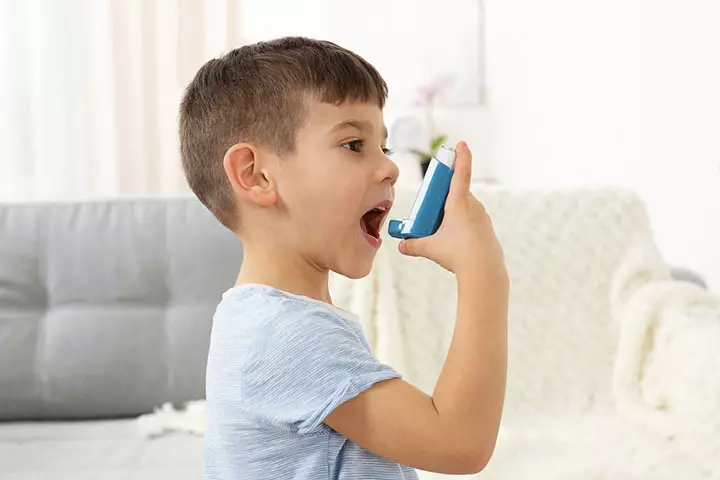
Image: Shutterstock
- Inflammatory bowel syndrome (IBD): A comprehensive review by multiple institutions unveiled that in 2018, Canada housed more than 7,000 children and youth below the age of 18 living with IBD. The study further identified an annual diagnosis rate of approximately 600 to 650 children aged under 16. For its treatment, corticosteroids, like prednisone, are prescribed for IBDiDisorders characterized by chronic inflammation of the tissues in the digestive tract , Crohn’s diseaseiA chronic inflammatory bowel disease that affects the lining of the digestive tract , and ulcerative colitisiAn inflammatory bowel disease that leads to inflammation and ulcers in the digestive tract . It helps control inflammation in the case of IBD.
- Autoimmune diseases: Prednisone is prescribed for autoimmune diseasesiCondition when the body’s immune system attacks healthy cells such as lupusiAn inflammatory autoimmune disease where the body’s tissues are attacked , acquired autoimmune hemolytic anemiaiA rare disease in which the body mistake the red blood cells for foreign substances and attacks them , dermatomyositisiAn uncommon inflammatory disease characterized by muscle weakness and skin rash , arthritis, etc. In these diseases, the body’s immune system mistakenly attacks the body. Since corticosteroids act as immunosuppressives with immunomodulatory effects, they help in reducing the severity of the symptoms and offer pain relief.
- Duchenne muscular dystrophyiAn inherited disorder particularly seen in boys where the muscles experience progressive weakness (DMD): Corticosteroids slow down the progression of muscle weakness, and help preserve muscle strength. They also help preserve the heart and breathing muscles (3).

Image: IStock
Is Prednisone Safe For Children?
According to the US Food and Drug Administration (FDA), the efficacy and safety of prednisone in children are backed by well-established studies.
However, it observes that the effects of prolonged treatment with prednisone should be weighed against the clinical benefits. Children should be given the lowest effective dose to minimize the negative effects (1).
Some studies prove that prednisone is effective and safe in children to treat nephrotic syndrome and aggressive lymphomasiA cancer of the lymphatic system which includes the lymph nodes, spleen, thymus gland, and bone marrow lymphomas and leukemia, severe asthma, eczema, and wheezing. A randomized study on 76 children with steroid-resistant nephrotic syndrome, who were treated with a combination of tacrolimusiAn immunosuppressive drug and low-dose prednisone was found safe and effective (4).
Sharing the effectiveness of Prednisone in her caregiving routine for her children with allergies and asthma, a mother and blogger notes, “We have a bottle of Prednisone at home for each of the kids. The asthma doctor knows that when my kids get sick, they go from a little sniffle to dangerously ill very fast! He has given me strict instructions on when to give the kids Prednisone. Sometimes, the medicine would be enough to keep the swelling down in their lungs, and we could avoid going to the hospital (i).”
Prednisone should only be given to children when your doctor prescribes them. Never self-medicate as it can result in some serious consequences.
Prednisone Dosage For Children
Your doctor will prescribe the dosage based on your child’s body response and the severity of the condition.
There are certain dosage specific precautions to be taken while administering prednisone to children:
- Prednisone should not be given on an empty stomach. If your child’s doctor has prescribed prednisone once every day, then the dose will be after a meal; for instance, after breakfast.
- Only use the measuring device provided with the medicine, when using the liquid form of prednisone. Do not use kitchen spoons to measure the medicine.
- While buying the medication, read the label carefully to make sure you are buying the correct strength prescribed by the doctor.

Image: IStock
- If you missed one dosage, then administer it when you remember. But if it’s almost time for the next dosage, then follow your original schedule. Do not administer two doses or double the dosage to make up for the missed dosage. If you have doubts regarding the same, then contact your doctor.
- Vomiting or throwing up is a one of the common prednisone side effects for kids, so always stay with your child until they swallow the medication. If the child vomits the medicine completely, then once the child calms down, give the same amount of medicine one more time. But, if the vomiting happens with the future prednisone dose for kids, then talk to your doctor (5).
Elkins suggests, “Prednisone is given orally, either in liquid form or tablets. Parents should know that children love to spit up their medications, and prednisone is no exception, especially because it is so bitter. Mixing the medication in juice or other more flavorful liquids might be helpful, so there is a greater chance of getting it down.”
Side Effects Of Prednisone
A study conducted on 3,200 children stated that vomiting, behavioral changes, and sleep disturbances were the most frequent side effects seen during short-term corticosteroid therapy. However, the study also emphasized that the increased susceptibility to infection was the most serious adverse drug reaction, as this drug suppresses the body’s immune system (6).
The US FDA warns that the use of prednisone can affect the growth and development of children, so pediatric patients on long-term prednisone treatment should be monitored constantly. The adverse reactions of the drug are similar to those in adults.
The mother also mentions noticing side effects of Prednisone in her kids on a different blog, “Prednisone can have some nasty side effects. My kids always get angry, eat a lot, wouldn’t be able to sleep, their face would puff up, and their cheeks would turn red (ii).”
 Point to consider
Point to considerCommon short-term side effects of Prednisone
The following are some common short-term side effects of Prednisone (1) (3)
.
- Fluid retention (can lead to swollen hands, feet, or abdomen)
- Alteration in glucose tolerance
- Behavioral changes, such as irritability and temper tantrums
- Increased appetite and weight gain
- Mood changes
- Roundness of the face
- Slight increase in body hair, especially on the arms, legs, and neck
- Headaches
- Mild stomach aches
- Skin conditions such as mild acne and dryness.
Long-term side effects of Prednisone
Long-term usage of Prednisone can have certain side effects on children. These include the following (7)
- OsteoporosisiA condition in which the bones become brittle and weak (characterized by weak and brittle bones)
- Stunted growth
- Cataracts (cloudiness in the eye’s lenses—causes unclear vision)
- Osteopenia (loss of bone mineral density)
- Cutaneous atrophy (thinning of skin, resulting in a fragile and more transparent appearance)
- Hypertension and psychosis
- Adrenaline and immune suppression
It is essential to discuss the extent of side effects before starting the therapy for your child. Your child’s doctor might prescribe the lowest possible dosage, which may still help with your child’s condition. Doctors usually prescribe prednisone only when the potential benefits outweigh the risks.
As there are possible side effects while using prednisone, your doctor may advise regular screening to monitor the functioning of the body functions and also to know the extent of the effect of the medicine on them. Some of the tests include:
- Checking blood pressure
- Urine screening
- Lung-function test
- Muscle-strength test
- Calcium in bones
- Eye check-up
- Height and weight measurement (1) (3).
Ways To Cope With The Side Effects Of Prednisone
The side effects of prednisone are something you cannot avoid, but you can always take certain measures to help your child cope with them. Managing the side effects may also help minimize any long-term effects to some extent.
- If your child is gaining weight due to increased appetite, limit calorie-laden food. You can limit the portion size while incorporating more fresh vegetables and fruits in the diet. Regular exercise can also help maintain weight.

Image: Shutterstock
- Avoid giving your child foods with high sugar content, and add no salt to their food (8).
- Taking prednisone with food may cause indigestion due to irritation of the stomach wall. Minimize the chances of discomfort by not giving spicy food to the child for the meal that precedes the dose. Also, talk to your doctor to suggest medications to protect your child’s stomach.
- If your child is having trouble sleeping because of the medication, then it is best to give the medicine during the day time, so that the levels in the blood are low during night
(9).
- It is advised to use prednisone at the lowest possible dose and least duration to reduce the risk of osteoporosis. Your doctor might also prescribe calcium and vitamin D supplements. Maintaining proper nutrition, in general, may also help the child cope with prednisone therapy better.

Image: Shutterstock
- Studies proved that prednisone is 18 times less likely to affect the growth of your child than some other corticosteroids. You may be able to further reduce the extent of side effects by asking your child’s doctor about alternate-day dosage (10).
 Be watchful
Be watchfulNote: Alter the dosage days only upon your doctor’s instructions, and never skip a dose on your own.
Prednisone Drug Interactions
When your child is on prednisone therapy, be alert towards other medications since prednisone could interact with other drugs to cause adverse reactions.
- Avoid giving over-the-counter drugs such as acetaminopheniAlso known as Paracetamol, it is a medication used to treat fever and mild or moderate pain , aspirin, antacids, or cold medications. If it is a must, then consult your child’s doctor first.
- Certain medications should not be taken with prednisone, and if taken, the child has to be monitored. Consult your doctor before giving your child the following medicines.
- Echinacea
- WarfariniMedication used to treat blood clots and prevent future clots
- IsoniazidiMedication used to treat tuberculosis or prevent its return
- CyclosporineiAn immunosuppressive drug
- Furosemide
- Certain antibiotics
- Hydrochlorothiazide
- Some vaccines and diabetes medicines
 Caution
Caution- If you are using any home remedies or herbal supplements, inform your doctor to know their safety.
- Avoid giving soft drinks, chocolate drinks, tea, or coffee to your child while taking this medicine (5).
- Avoid giving cough syrups containing alcohol. Consult your doctor to prescribe a nonalcoholic cough syrup (8).
General Precautions To Be Taken While Giving Prednisone To Kids
- Prednisone should only be given as per the prescribed dosage. Do not increase or decrease the dosage without consulting your child’s doctor.
- Never stop giving prednisone suddenly, as it can cause withdrawal symptoms.
- The drug suppresses the immune system and can make the body susceptible to infections. Maintain good hygiene by asking your child to wash their hands often. It is ideal for the child to stay away from people with infections, like cold and flu (11).
- If your kid gets allergies due to prednisone, then inform the doctor. Also, let your doctor know if your kid has any of the below chronic conditions
- High blood pressure
- Kidney problems
- Seizures
- Diabetes
- Thyroid problems
- Tuberculosis (5)
Doctors often prescribe Prednisone for autoimmune diseases in children. A few examples of such conditions are inflammatory bowel syndrome and asthma. Although several studies suggest that the medication is safe for children, you should not administer it without consulting your doctor. Children should be given the lowest possible dose necessary for effective treatment. The dosage of prednisone depends on the child’s age and the severity of the disease. The medication may have short- and long-term side effects on children, such as mood changes, fluid retention, headache, osteoporosis, stunted growth, etc. If your child is on prednisone therapy, visit the doctor for regular screening. Also, follow all precautionary tips to reduce the side effects.
Frequently Asked Questions
1. Will prednisone make my child hyper?
One of the potential side effects of short-term use of prednisone in children is increased blood sugar and blood pressure levels, which may lead to hyperactivity in some children (3).
2. Does prednisone make my child sleepy?
Prednisone is a type of corticosteroid, which has been shown to affect sleep quality and schedule in children (12). If you notice any of these effects, speak to the child’s doctor.
3. How long does it take for prednisone to work in children?
Prednisone usually takes about four to six hours to show its effects (13).
4. When is the best time to give prednisone to my child?
“Prednisone is best given after breakfast because you do not want to give it on an empty stomach, or it might upset the child’s stomach. As prednisone is also known to affect people’s sleep, it is much better to give it in the morning than at night,” recommends Elkins.
This post is for informational purposes only and is not a replacement for a doctor’s consultation. Do not use any medication without talking to your doctor.
Infographic: Potential Reactions To Prednisone In Children
Prednisone is a steroid medication that may have certain side effects in children. It is important to be vigilant about the severity of such side effects. The infographic below provides a list of conditions and symptoms which need medical attention when a child is on prednisone. Illustration: Momjunction Design Team
Illustration: Prednisone For Kids: Uses Side Effects And Precautions

Image: Dalle E/MomJunction Design Team
Watch this informative video to discover the proper regimen for taking 10 mg of prednisone over a 5-day period. Gain valuable insights on the optimal timing and method of administration for optimal outcomes.
Personal Experience: Source
MomJunction articles include first-hand experiences to provide you with better insights through real-life narratives. Here are the sources of personal accounts referenced in this article.
i. Prednisone and Decadron. Necessary evil!;https://asthmamomlife.blogspot.com/2013/12/prednisone-and-decadronnecessary-evil.html
ii. Prednisone: Necessary evil;
https://asthmamomlife.blogspot.com/2016/06/prednisone-necessary-evil.html
References
1. Prescribing Information- Rayos; The US Food and Drug Administration
2. Prednisolone in acute childhood asthma; clinical responses to three dosages
3. Corticosteroid Medicine; The Royal Children’s Hospital Melbourne
4. Chen HX, et al.; Efficacy and safety of tacrolimus and low-dose prednisone in Chinese children with steroid-resistant nephrotic syndrome; NCBI (2019)
5. Prednisone and Prednisolone; Nationwide Children’s Hospital
6. Fahad Aljebab, Imti Choonara, Sharon Conroy; Systematic review of the toxicity of short-course oral corticosteroids in children; British Medical Journal
7. Michael J Rieder;The child with multiple short courses of steroid therapy; NCBI(2003)
8. Pediatric Prednisone (Deltasone®) Uses and Side Effects; Children’s Hospital of Pittsburgh
9. Prednisolone; National Healthcare System
10. Dora Liu, et al.; A practical guide to the monitoring and management of the complications of systemic corticosteroid therapy; NCBI(2013)
11. Prednisone; Memorial Sloan Kettering Cancer Center
12. Lauren C. Daniel et al.; The impact of dexamethasone and prednisone on sleep in children with acute lymphoblastic leukemia; PubMed Central
13. Prednisolone for asthma; Medicines for children
14. Vaccination Recommendations; Parent Project Muscular Dystrophy
Community Experiences
Join the conversation and become a part of our nurturing community! Share your stories, experiences, and insights to connect with fellow parents.
Read full bio of Jenni Johnson
- Krista Elkins is a registered nurse and paramedic with experience in emergency, intensive care, primary care, specialty care, and psychiatry. She holds a bachelor's degree in Health Sciences from the University of Hawaii at Manoa and is a graduate of Excelsior University's registered nursing program.
 Krista Elkins is a registered nurse and paramedic with experience in emergency, intensive care, primary care, specialty care, and psychiatry. She holds a bachelor's degree in Health Sciences from the University of Hawaii at Manoa and is a graduate of Excelsior University's registered nursing program.
Krista Elkins is a registered nurse and paramedic with experience in emergency, intensive care, primary care, specialty care, and psychiatry. She holds a bachelor's degree in Health Sciences from the University of Hawaii at Manoa and is a graduate of Excelsior University's registered nursing program.
Read full bio of shreeja pillai
Read full bio of Swati Patwal
Read full bio of Dr. Joyani Das










